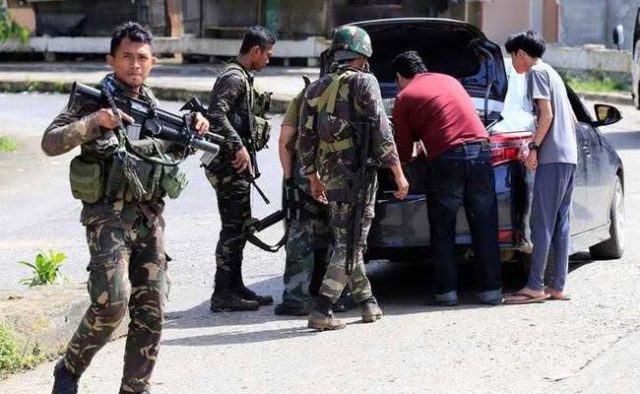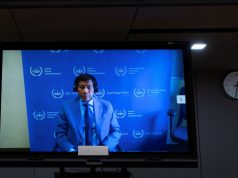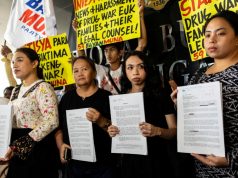MANILA, Philippines — The two extensions of martial law in Mindanao come to a total of 526 days — just short of a year and a half — or 876.67 percent more than the original 60-day period of Proclamation 216 with which President Rodrigo Dutete placed the south under military rule, opposition lawmakers have noted.
The “Magnificent 7” lawmakers in the House of Representatives who have challenged the second extension of martial law — which will run for the whole of 2018 — before the Supreme Court called it “inordinately long” and “a deplorable defiance of the constitutional limitation (on) the duration of martial law and its extension.”
Duterte declared martial law in Mindanao on May 23 when fighting broke out between government forces and extremist gunmen in Marawi City, invoking the constitutional provision that allows his to do so for 60 days. He got Congress to extend this when the period lapsed with fighting still raging.
However, he requested, and the overwhelmingly pro-administration Congress granted, the second extension early this month, well after Duterte declared Marawi “liberated” in late October.
Recent opinion polls show a majority of Filipinos, including Duterte’s fellow Mindanaoans, oppose the second extension.
Albay Representative Edcel Lagman, one of the lawmakers mounting the legal challenge to the second extension noted that among the stringent safeguards in the 1987 Constitution “to deter and foreclose abuses as a result of a martial law imposition is the manifest limitation of the period of martial law and the suspension of the writ of habeas corpus and the extension thereof.”
“The Constitution provides that the declaration of martial law and the suspension of the writ of habeas corpus shall be ‘for a period not exceeding sixty days,’ and any extension thereof may be granted by the Congress upon initiative of the President, in the ‘same manner’ as the original proclamation sought to be extended,” he added.
“This means,” Lagman explained, “that a valid extension must comply with the following requisites: (a) a joint session of the Congress must act on the extension; (b) it must be based on the limited grounds of actual rebellion or invasion when public safety requires it; and (c) it must be only for a reasonably short duration.”
“A full year re-extension, aside from being factually unwarranted, is oppressively long and patently unconstitutional,” he added.










